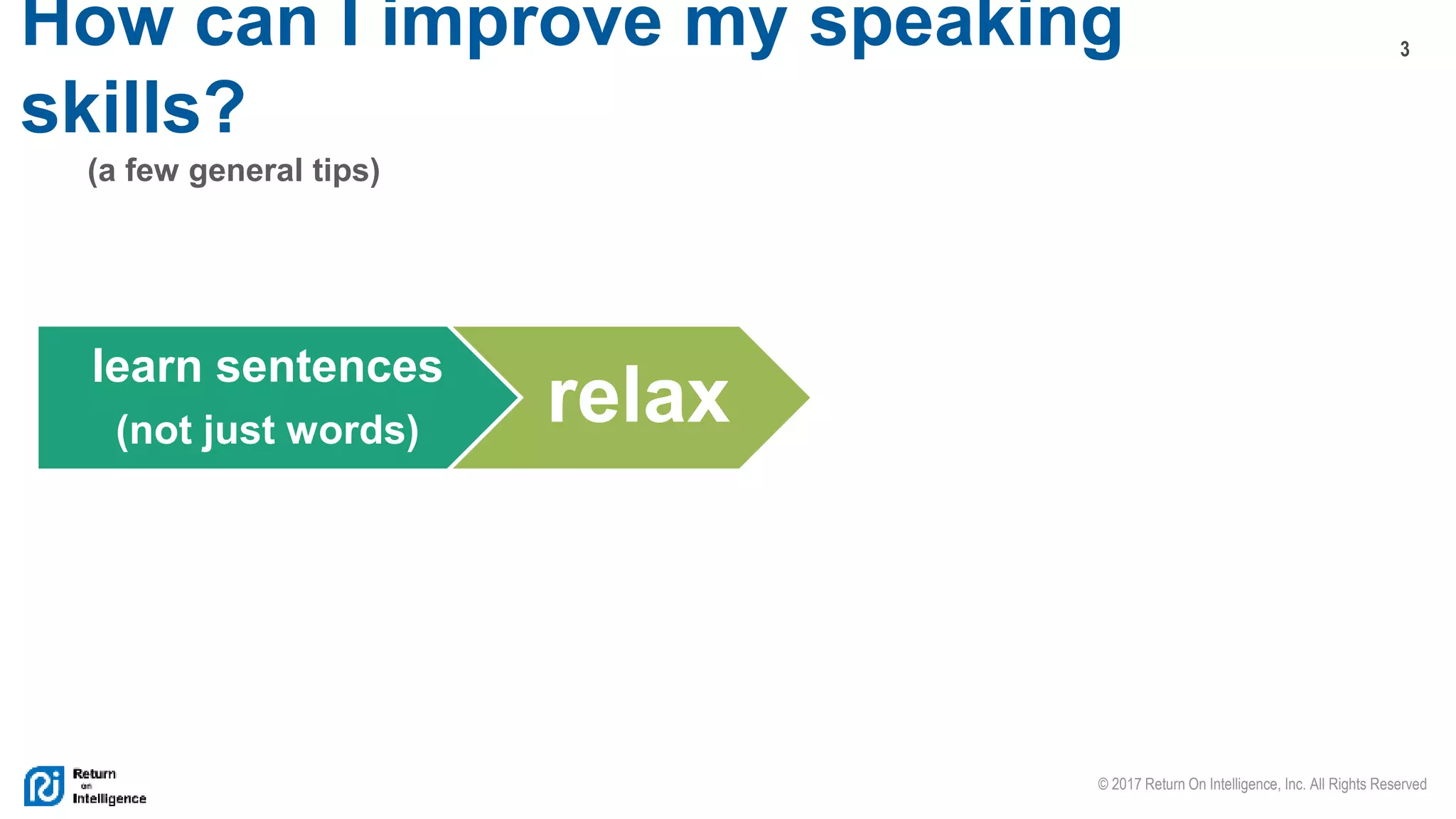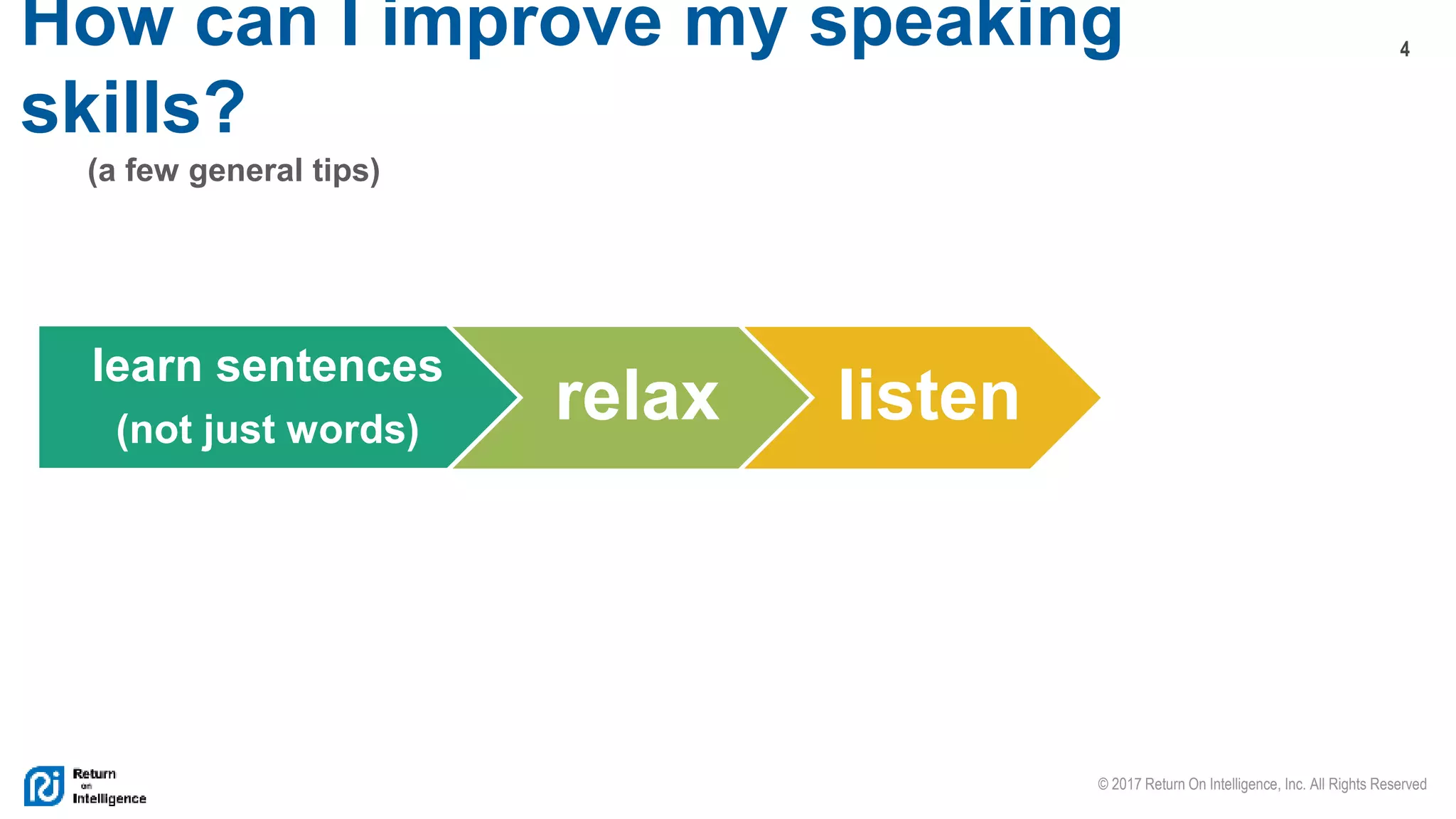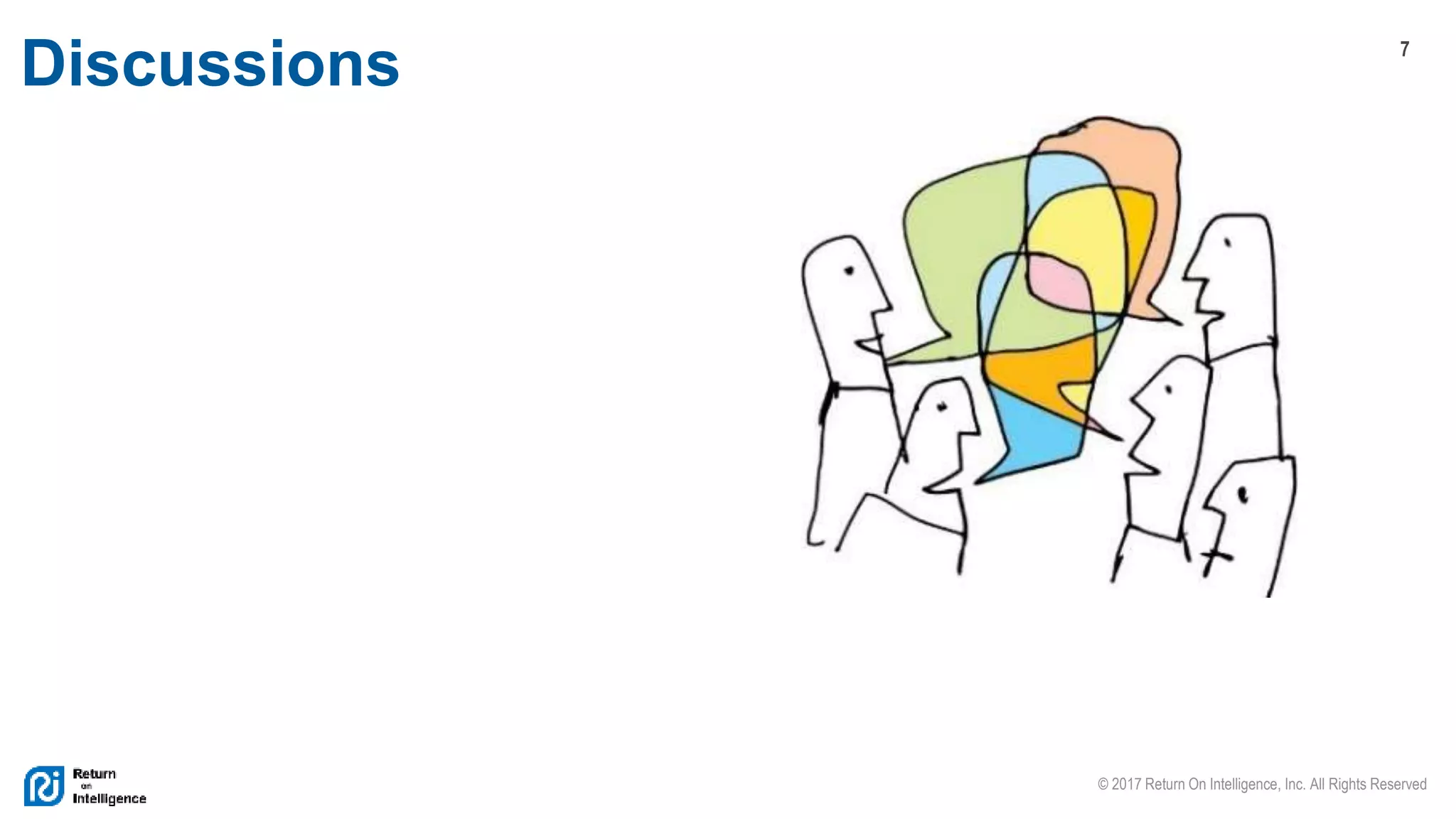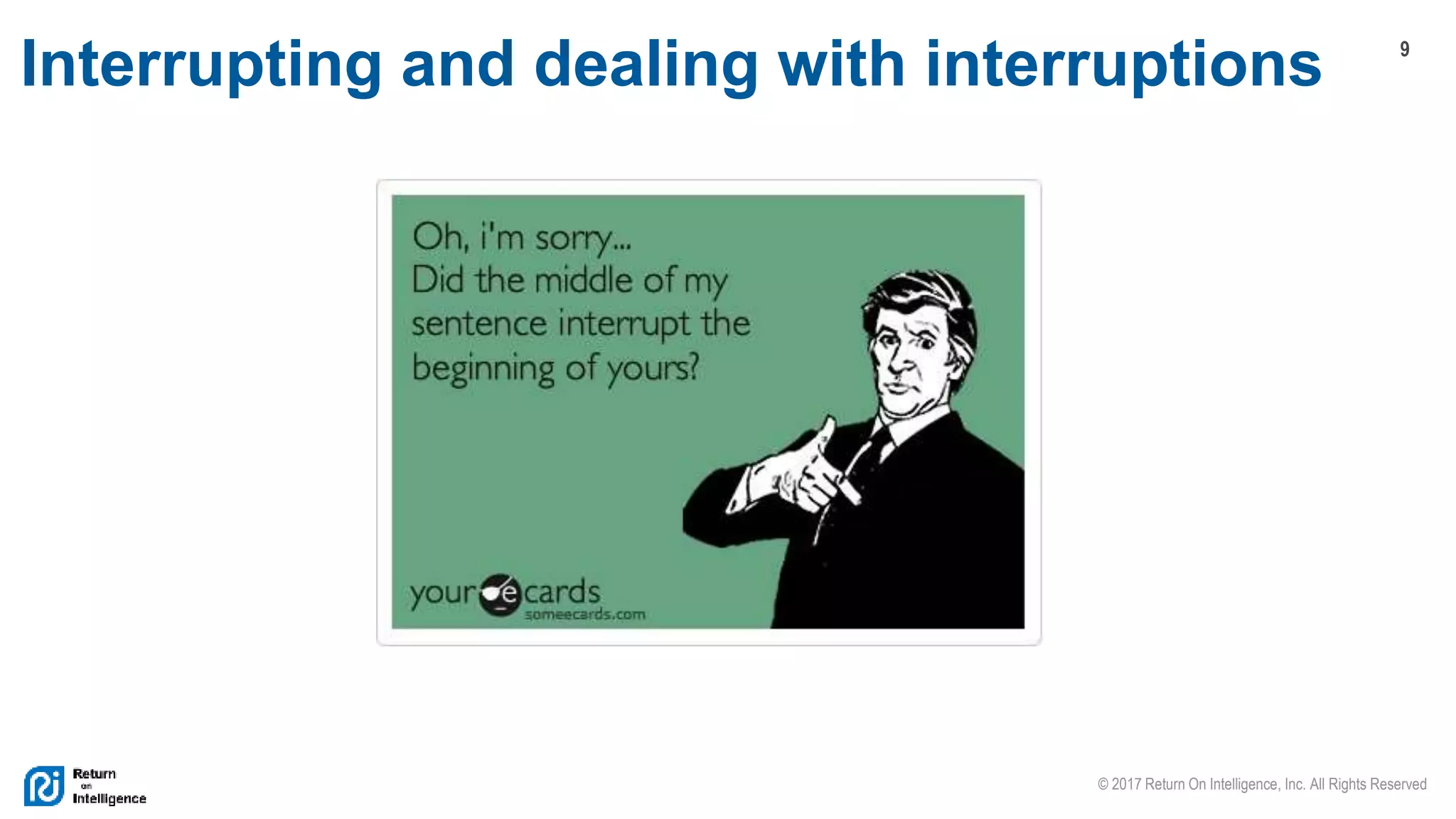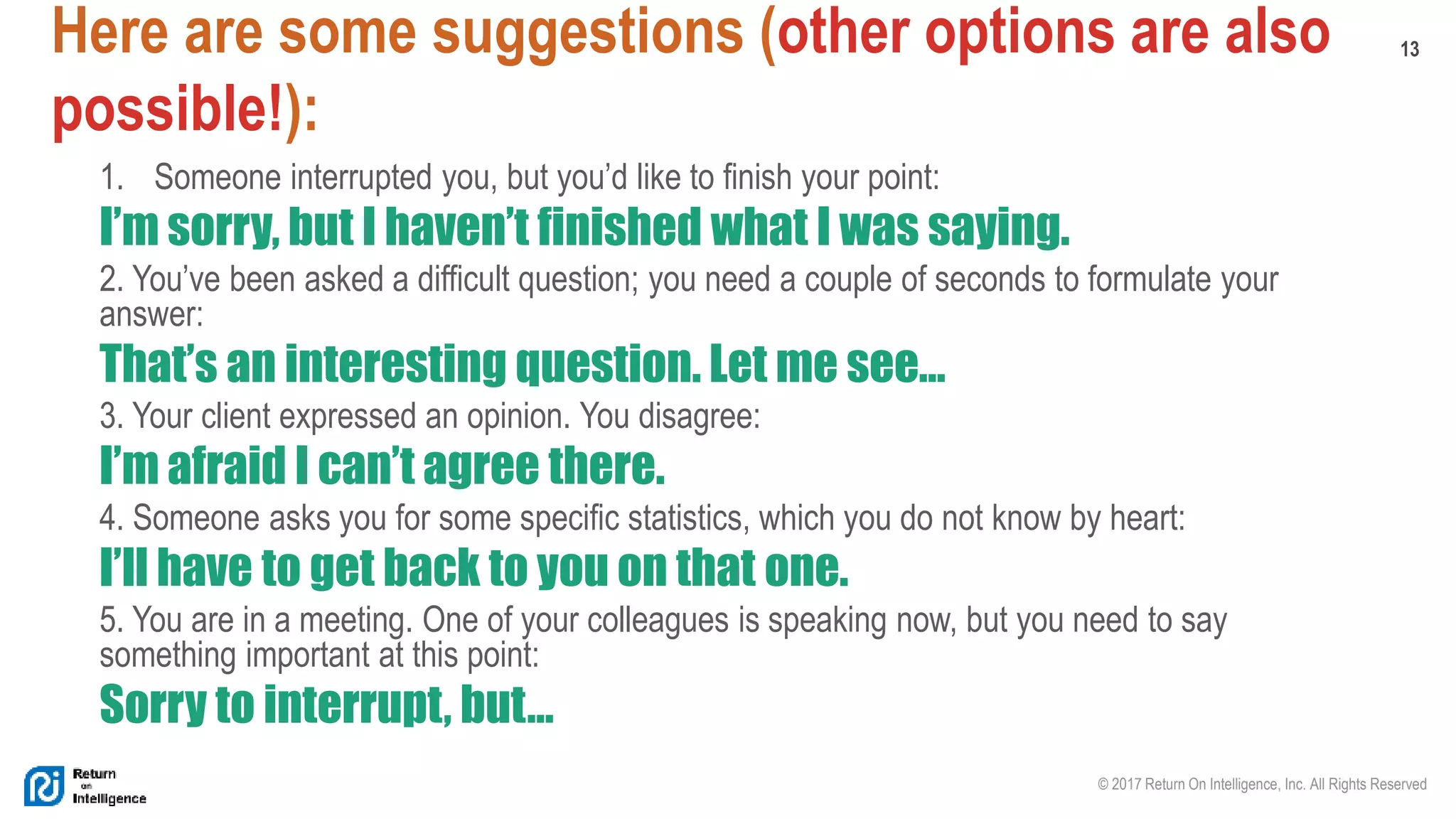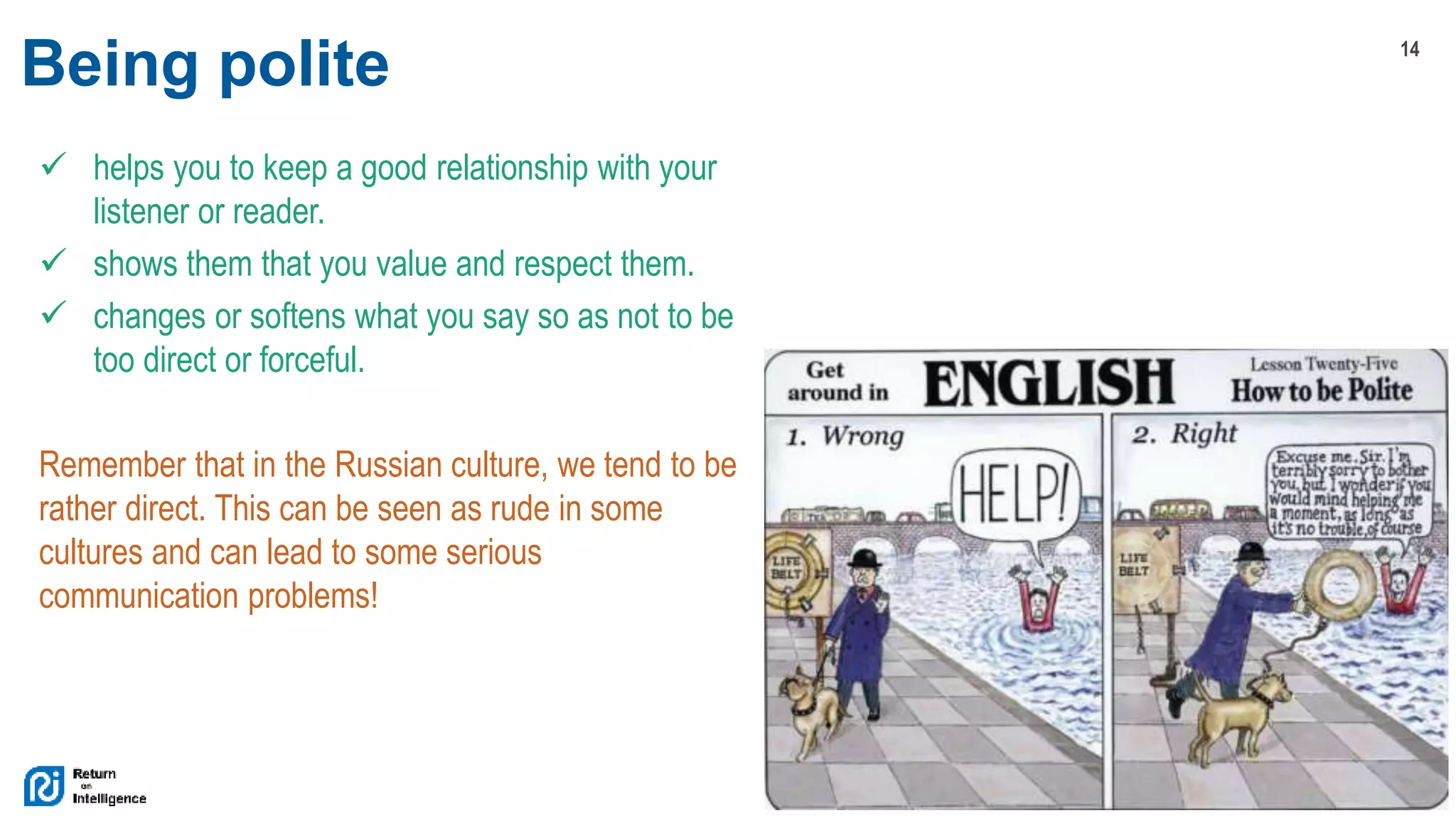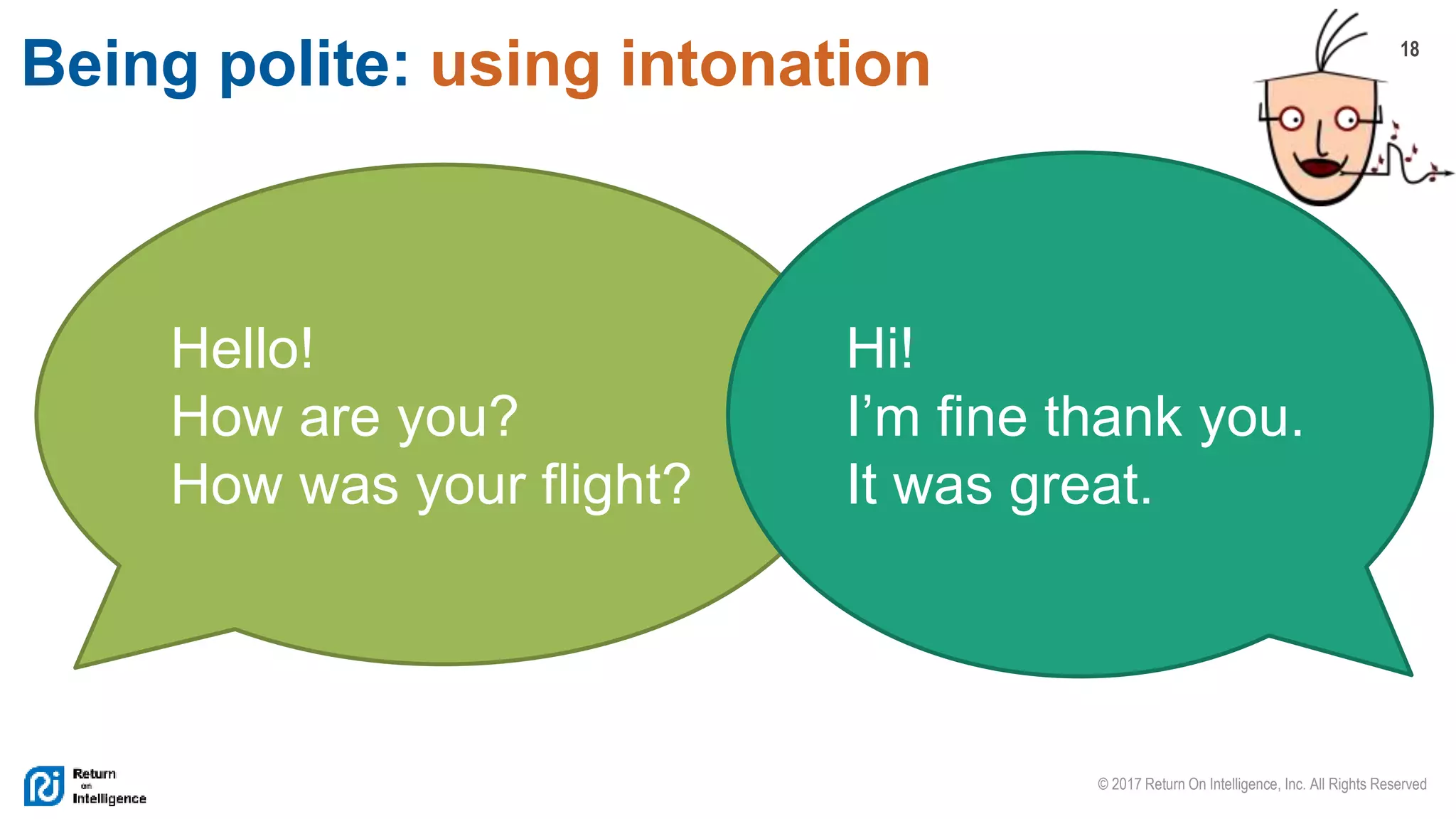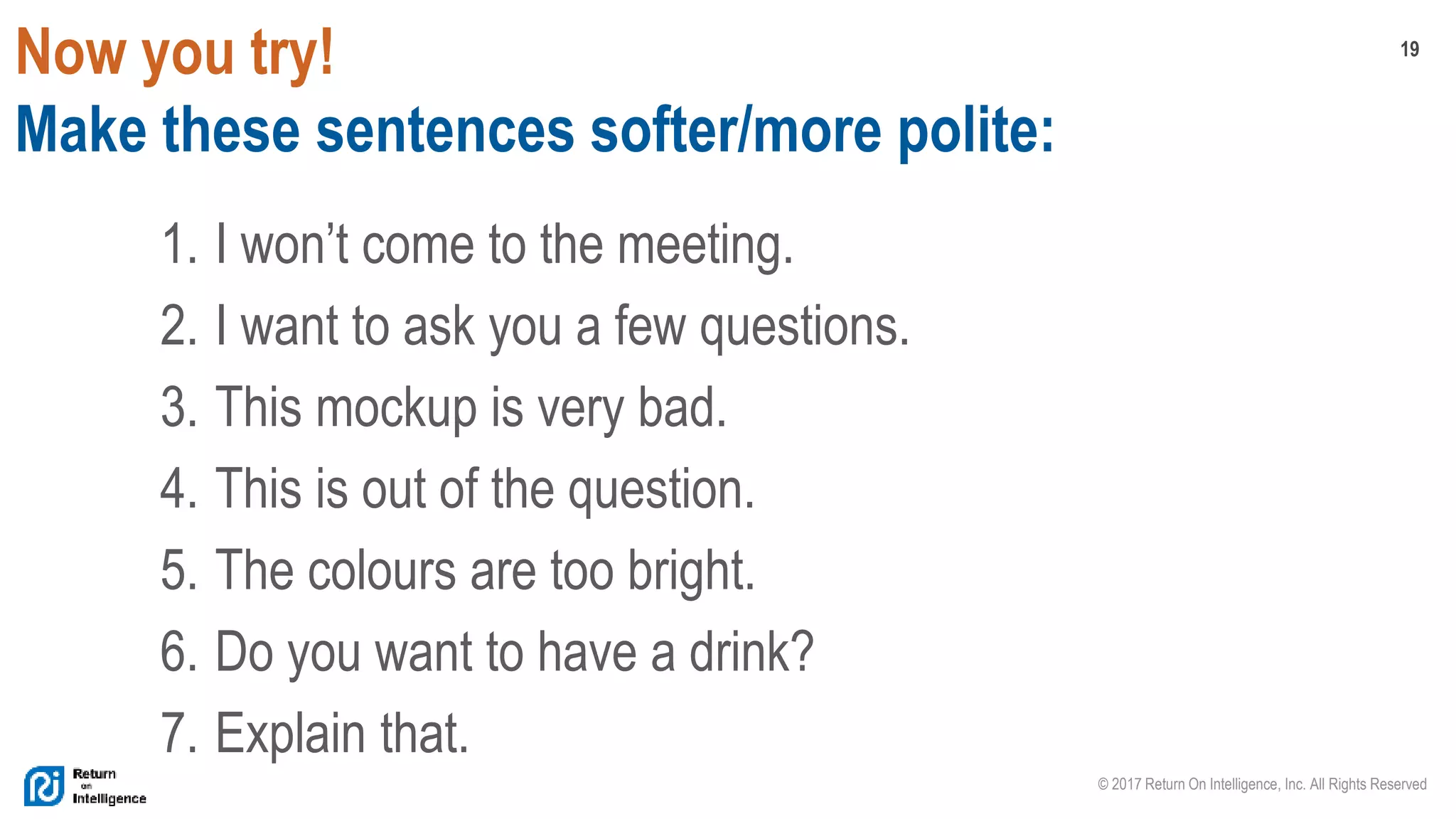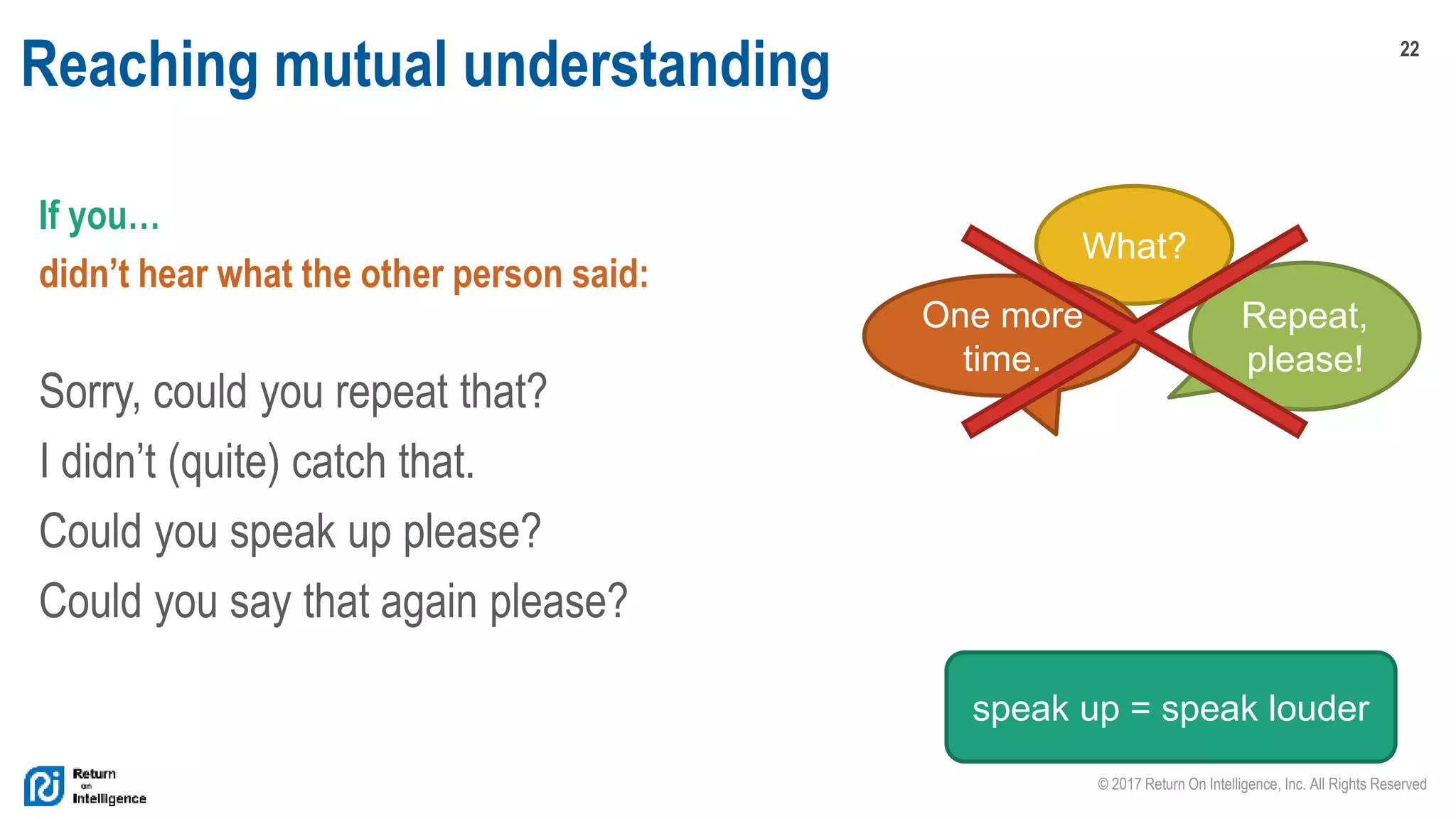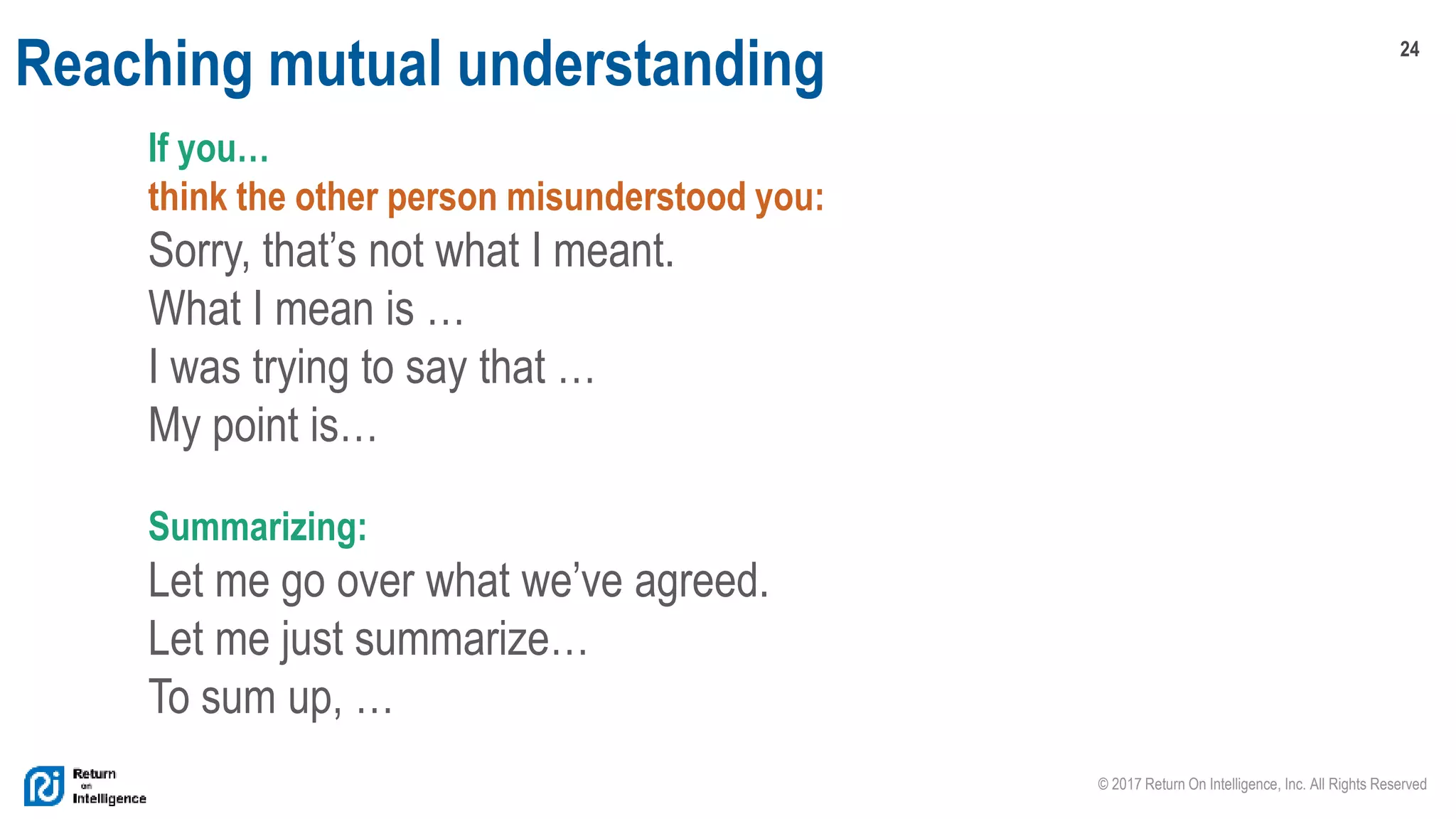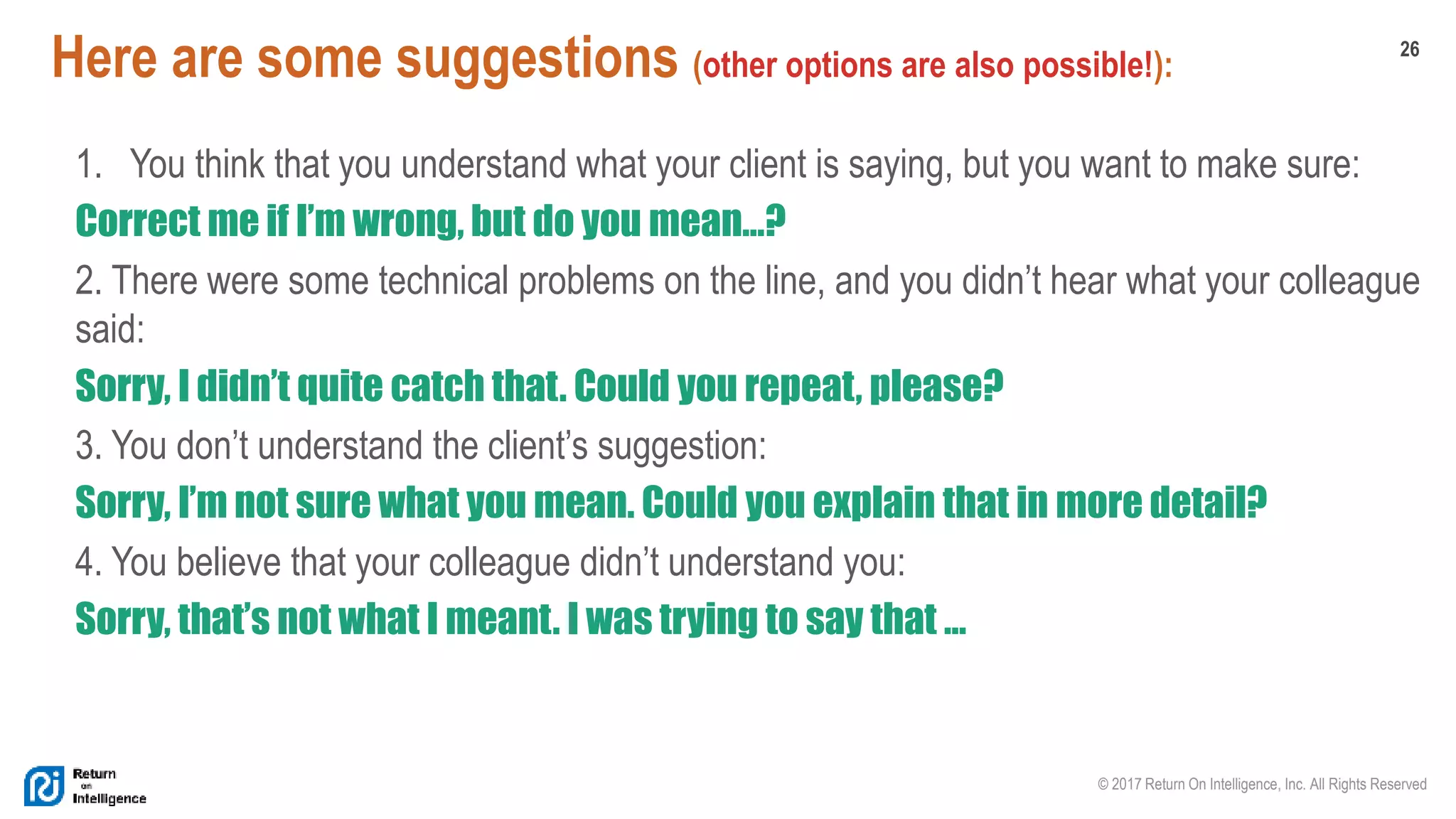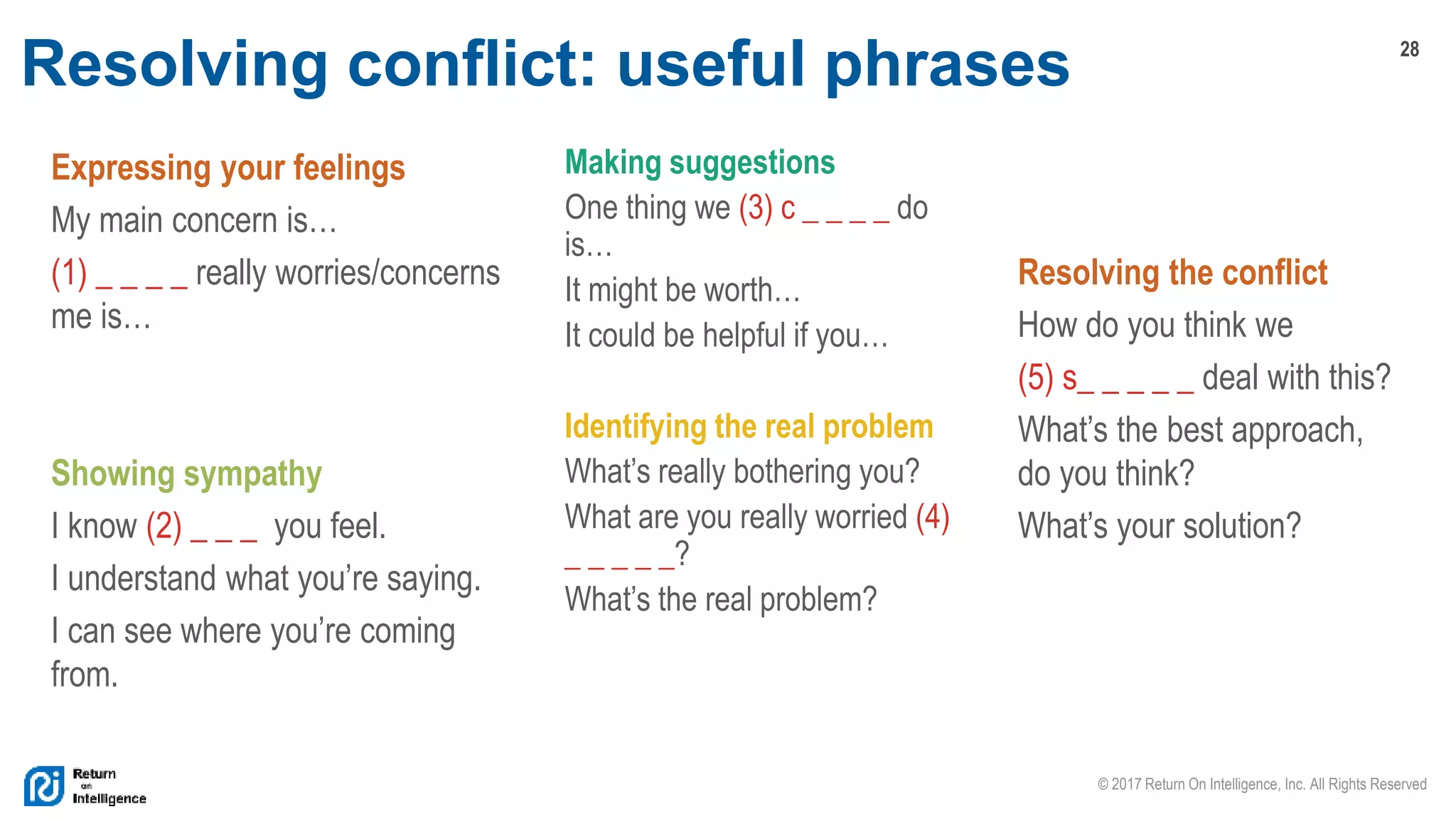This document provides tips and guidelines for effective communication in English. It covers improving speaking skills through learning phrases, relaxing, and practicing. It also discusses discussions, interruptions, dealing with difficult questions, being polite, reaching mutual understanding, and resolving conflicts. Sample phrases are provided for different communication situations.


![2
© 2017 Return On Intelligence, Inc. All Rights Reserved
How can I improve my speaking
skills?
(a few general tips)
learn sentences
(not just words)
• during the day
• in the meantime
• It’s been a long time since…
• Sorry to bother you, but…
• Would you mind if…?
• Oh, come on!
• I’m just kidding!
• The bottom line is…
• I’m sorry, but I can’t agree with you.
• Do you feel like… [going out for a meal]?
• I thought we could give it a try.](https://image.slidesharecdn.com/effectivecommunicationinenglish-170525103657/75/Effective-Communication-in-english-3-2048.jpg)
